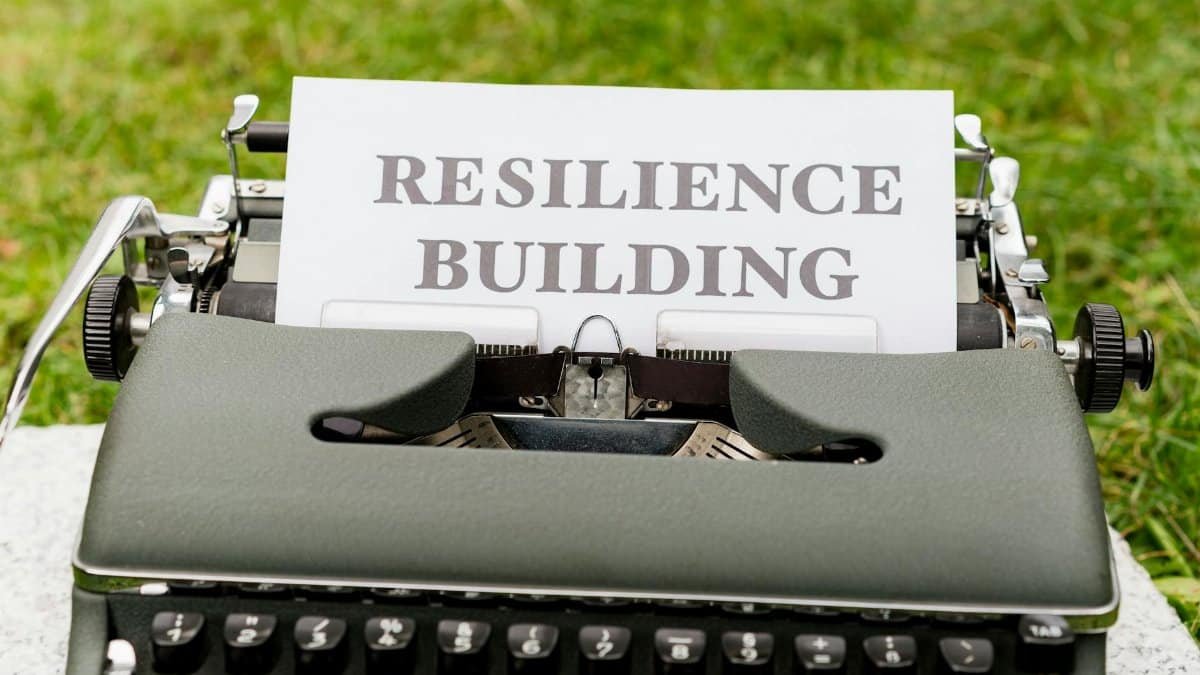In a nation where stress levels are skyrocketing, a recent poll from the American Psychological Association revealed that 76% of adults report feeling overwhelmed by daily demands, up from 59% just five years ago. This surge highlights a growing hunger for tools that foster inner calm. Enter self-inquiry, a practice that’s quietly gaining traction among those seeking more than surface-level fixes. Far from a fleeting trend, it invites people to question their thoughts, beliefs, and habits in a structured way. For many middle-aged Americans juggling careers, families, and uncertainties, this approach offers a path to clarity amid the chaos. As we navigate 2025’s fast-paced world, understanding what emerges from dedicated self-inquiry can illuminate why it’s resonating now more than ever.
The Essence of Self-Inquiry

At its core, self-inquiry involves turning inward to examine the stories we tell ourselves. It’s not about endless navel-gazing but a deliberate process of asking, “Who am I beyond my roles and reactions?” This method draws from ancient philosophies, like those in Eastern traditions, yet adapts seamlessly to Western life. Think of it as peeling back layers of an onion, each question revealing something raw and real.
One woman in her forties, a teacher from Chicago, shared how it started for her during a quiet evening walk. “I kept replaying a argument with my spouse,” she recalled. “Instead of pushing it away, I asked why it bothered me so much. It led to uncovering old fears from childhood.” Such moments aren’t rare. They show how self-inquiry sparks insight without needing a guru or retreat.
Research backs this up. A study from Harvard University’s Mind/Body Medical Institute found that practices involving self-reflection can reduce anxiety by up to 30%.Harvard Health Publishing details how questioning one’s thought patterns rewires the brain for resilience. It’s practical, grounded in science, and accessible to anyone willing to pause.
Yet, it’s not always straightforward. Doubts creep in, especially when life feels too busy for introspection. But starting small, with just five minutes a day, can build momentum. Over time, this essence unfolds into something transformative, reshaping how we engage with the world.
Releasing Entrenched Patterns

Old habits die hard, but self-inquiry acts like a gentle chisel, chipping away at them. People often discover they’re clinging to outdated beliefs that no longer serve. A corporate executive in New York, for instance, realized his workaholic tendencies stemmed from a fear of inadequacy planted in his youth. Through consistent questioning, he began to let go, finding space for hobbies and rest.
This release isn’t instantaneous. It builds gradually, layer by layer. Short bursts of inquiry during commutes or before bed can reveal patterns like people-pleasing or perfectionism. One anonymous account from an online discussion captured it vividly: “I felt like I was shedding a heavy coat I’d worn for decades. Suddenly, decisions became lighter.”
Evidence from the National Institutes of Health supports this shift. Their research on cognitive behavioral techniques, which overlap with self-inquiry, shows improved emotional regulation.NIMH Anxiety Disorders Page explains how self-examination disrupts negative cycles, leading to measurable drops in stress hormones.
The beauty lies in the empowerment. No external validation needed; the discoveries come from within, fostering a sense of autonomy that’s rare in our advice-saturated culture.
Building Emotional Resilience

What if facing discomfort head-on could actually strengthen you? That’s a key discovery in self-inquiry. Practitioners often find that acknowledging vulnerabilities builds a sturdier emotional foundation. Take the case of a Midwestern retiree who, after losing his job, used inquiry to explore his grief. “Why does this define me?” he pondered. Answers emerged, revealing untapped strengths.
This resilience manifests in everyday scenarios. During heated family dinners or workplace tensions, a quick internal check-in can diffuse reactivity. Sentences shorten in the mind: “Is this anger mine, or inherited?” Such pauses create breathing room.
Longer reflections dive deeper, uncovering patterns of avoidance. A study by the American Psychological Association links self-reflective practices to better coping mechanisms.APA Resilience Resources notes that individuals who engage in regular introspection report 25% higher life satisfaction. It’s not magic; it’s methodical.
Of course, building this muscle takes time. Early attempts might feel awkward, like flexing an unused limb. But persistence pays off, turning fragility into fortitude, one question at a time.
Enhancing Relationships Through Insight

Self-inquiry doesn’t happen in isolation; it ripples into how we connect with others. Many report discovering hidden assumptions that sabotage bonds. A couple in California, for example, used it to unpack recurring arguments. By questioning their triggers, they fostered empathy, transforming conflict into conversation.
Imagine overhearing a friend’s complaint and, instead of defending, asking yourself, “What does this stir in me?” This shift promotes active listening, reducing misunderstandings. It’s subtle yet profound.
Pew Research Center’s surveys on social trends underscore this. Their data shows that Americans valuing self-awareness in relationships experience stronger ties.Pew Social Trends highlights how introspective habits correlate with lower divorce rates among middle-aged couples. In 2025, as remote work blurs boundaries, such tools become even more vital.
Challenges arise when vulnerability feels risky. Yet, the reward is deeper intimacy, proving that understanding oneself is the gateway to truly seeing others.
Navigating Challenges in the Process

No path is without bumps, and self-inquiry is no exception. Common hurdles include resistance from the ego, which prefers familiar discomfort over unknown change. One person described it as “hitting a wall of justifications” every time a tough question arose.
Distractions abound in our digital age. Phones buzz, pulling attention outward. Starting with guided journals or apps can help, providing structure amid chaos.
Experts from the Mayo Clinic advise patience. Their wellness guidelines emphasize that initial discomfort is normal.Mayo Clinic Meditation Guide suggests combining inquiry with mindfulness to ease entry. Over time, these obstacles become stepping stones.
Reflecting on setbacks as part of the journey keeps motivation alive. It’s messy, human, and ultimately rewarding.
Integrating Self-Inquiry into Daily Routines

Making self-inquiry a habit doesn’t require overhauling your life. It slips into routines like morning coffee or evening wind-downs. A busy parent in Texas wove it into her commute, turning traffic jams into reflection sessions.
Tools vary: Some use prompts like “What am I grateful for today?” Others journal freely. The key is consistency, even if imperfect.
Studies from the University of California, Berkeley’s Greater Good Science Center affirm the benefits. Their research on self-compassion practices shows enhanced well-being.Greater Good Science Center Self-Compassion details how daily inquiry boosts mood and productivity.
In a world of constant demands, these integrations offer pockets of peace, proving small steps lead to big shifts.
Transformations in Energy and Vitality

Devotees often speak of an energy shift, as if shedding burdens lightens the spirit. Freed from rumination, vitality surges. A graphic designer from Seattle noted, “Colors seemed brighter; I had stamina for creative projects I’d abandoned.”
This isn’t hyperbole. By questioning draining thoughts, people reclaim mental bandwidth. It’s like clearing clutter from a desk, making room for inspiration.
The Centers for Disease Control and Prevention links mental practices to better physical health.CDC Mental Health reports that reflective habits correlate with reduced fatigue. In 2025, with wellness apps proliferating, such discoveries are more accessible.
Yet, it’s personal. Each transformation unique, unfolding at its own pace.
The Broader Impact on Well-Being

Beyond the individual, self-inquiry fosters collective calm. Communities practicing it report less burnout, more compassion. In workplaces adopting mindfulness programs, productivity rises alongside satisfaction.
One group in a Denver co-op used shared inquiry sessions to navigate neighborhood tensions, building trust. It’s a reminder that inner work echoes outward.
As America grapples with mental health crises, this practice offers hope. It’s not a cure-all, but a tool for thriving amid uncertainty.
Embracing a Vibrant Way of Living

Ultimately, those devoted to self-inquiry uncover a more vibrant existence. Old patterns fade, making way for authenticity. It’s about living fully, questions and all.
From coast to coast, stories abound of renewed purpose. As one practitioner put it, “It’s like waking up to your own life.” In this reflective pursuit, discovery becomes the norm, inviting endless growth.
